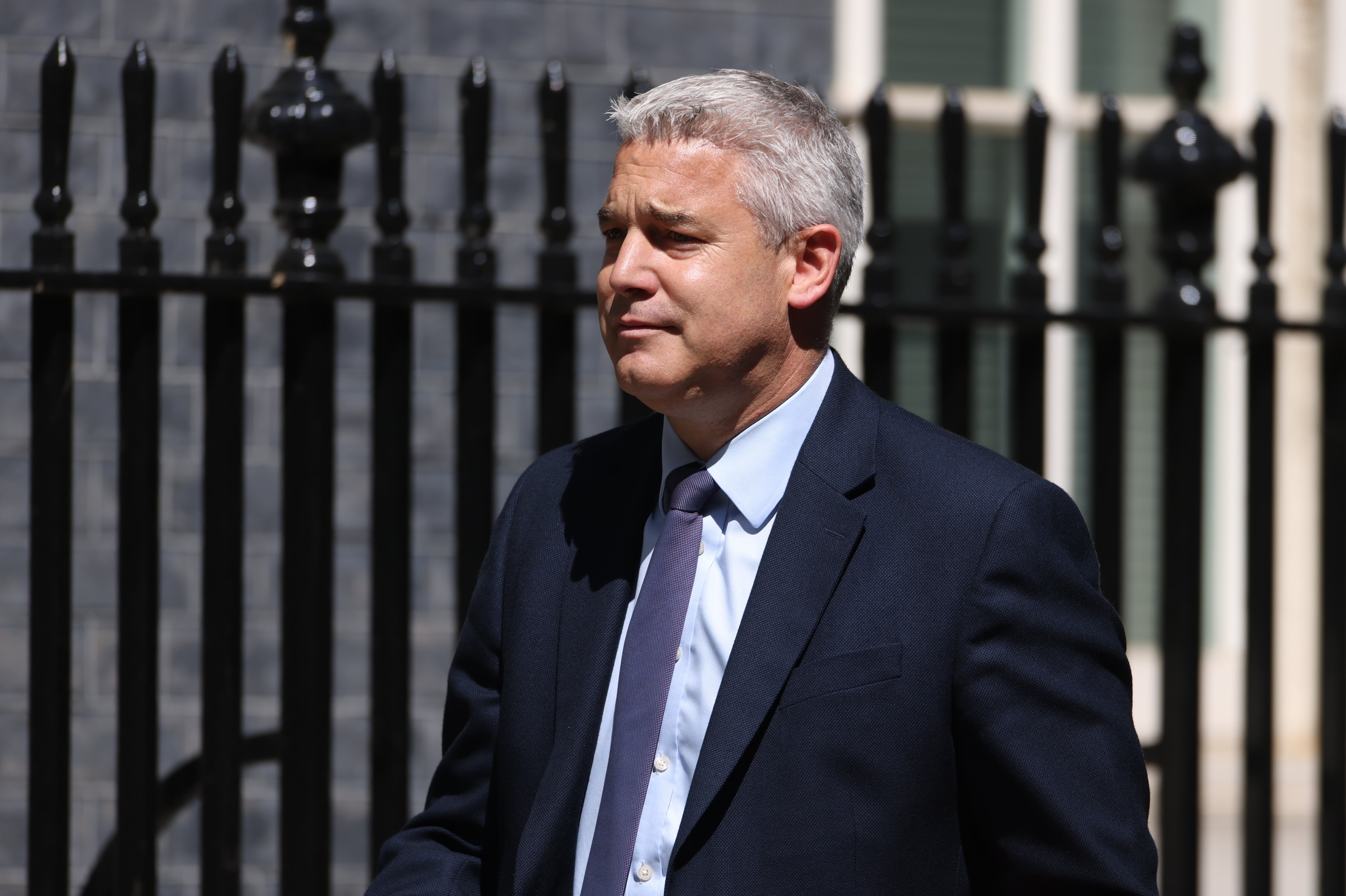Minister: Parents who have miscarriages before 24 weeks can record ‘tragic loss’
Health Secretary Steve Barclay spoke about the need to ‘improve care for women and their partners who experienced the tragedy of pregnancy loss’.

The Government will introduce a voluntary scheme to allow parents who have had miscarriages before 24 weeks of pregnancy to record it and receive a certificate to “provide recognition of their tragic loss”, MPs have heard.
Making a Commons statement on the Women’s Health Strategy for England, Health Secretary Steve Barclay spoke about the need to “improve care for women and their partners who experienced the tragedy of pregnancy loss”.
He said: “At the moment, although parents whose babies are stillborn must legally register the stillbirth, if a pregnancy ends before 24 weeks’ gestation, there is no formal process for parents to legally register their baby, which I know can be distressing for many bereaved parents.
For too long, women’s health has been hampered by fragmented services and women being ignored when they raise concerns about their pain
“So we will be accepting the interim update of the independent pregnancy loss review and introducing a voluntary scheme to allow parents who have experienced a loss before 24 weeks of pregnancy to record and receive a certificate to provide recognition of their tragic loss.”
He noted that “for too long, women’s health has been hampered by fragmented services and women being ignored when they raise concerns about their pain”.
“On too many occasions, we have heard of failures in patient safety because women raising concerns felt they had not been heard.
“We are publishing the first ever Women’s Health Strategy for England, setting out a wide range of commitments to improve the health of women and girls everywhere. I wanted to take this opportunity to pay tribute to the almost 100,000 women who took the time to share their stories with us, as painful as it may have been.
“Your voices have been heard and were vital in shaping this strategy.”
Labour shadow health secretary Wes Streeting said: “This strategy simply will not solve the depth of crisis in women’s healthcare after 12 years of Conservative mismanagement.”
We have a Government that’s more interested in stoking culture wars than acknowledging these inequalities even exist
Mr Barclay said: “First, we are putting in place a range of measures to ensure women are better listened to in the NHS.”
He also spoke about the importance of addressing the “lack of research into women’s health conditions” and improving “the representation of women’s data in all types of research”.
The Government will encourage businesses across the country to take up “best practice”, such as signing the Menopause Workplace Pledge, Mr Barclay added.
Mr Streeting noted that in “recent years we’ve seen a string of healthcare scandals primarily affecting women”.
Responding to the statement, he said: “For too long, women’s health has been an afterthought and the voices of women have been at best ignored and at worst silenced.”
He challenged Mr Barclay to “go further”, adding: “What plans (does) the Government have for clinicians who are already practising? We need to upskill the existing workforce, not just the incoming workforce.”
On health inequalities, he said: “We have a Government that’s more interested in stoking culture wars than acknowledging these inequalities even exist. Surely that has got to change with new leadership in the party opposite.
“The reality that faces women in this country is this: breast cancer waiting times are through the floor, half a million women are waiting for gynaecology treatment, black women are four times more likely to die in pregnancy and childbirth, and too many still can’t get HRT when they need it.”
Conservative former health secretary Sajid Javid said “early diagnosis is absolutely essential”, adding: “Could he also say a little bit more about what can be done around existing doctors and clinicians and training for them as well?”
On menopause services, Labour’s Carolyn Harris (Swansea East) said: “I broadly welcome the strategy but I do feel it does fall short in some in places.”
On HRT costs she added: “I’m bitterly disappointed the timeframe for that once-annual charge is delayed until April 2023, 18 months after it was promised, demonstrating to me a lack of urgency in dealing with women’s health issues that affects 51% of the population.”
Conservative former cabinet minister Maria Miller (Basingstoke) said the strategy was “silent on one of the most – the biggest – healthcare injustices that women face in our country, that abortion is still treated under Victorian, criminal law, with the most draconian laws in the world”.
Mr Barclay said: “We have a sexual health review that is currently being conducted that will report later this year.”
Bookmark popover
Removed from bookmarks